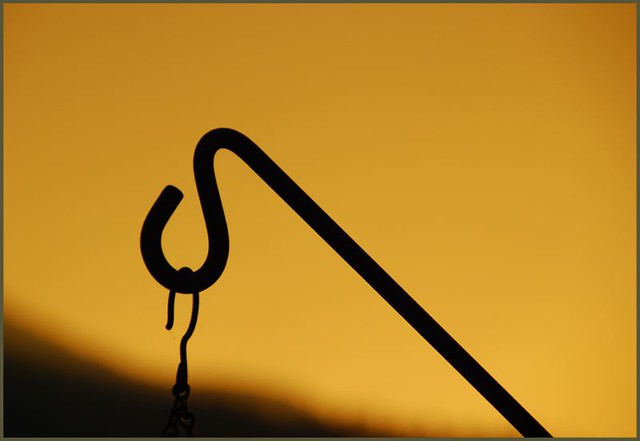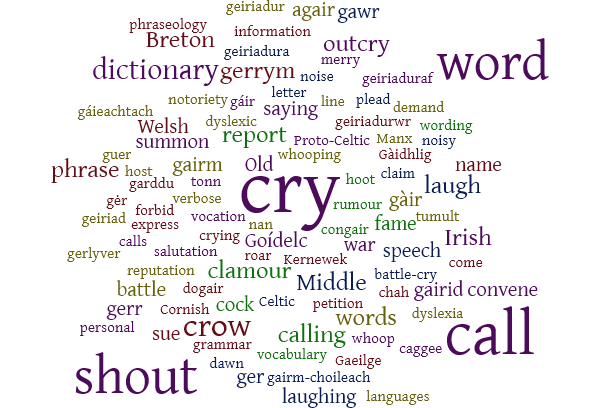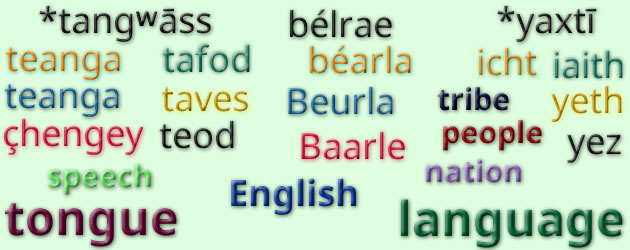Words for booths, huts and related things in Celtic languages:
| Proto-Celtic | *butā = place, dwelling, hut |
|---|---|
| Old Irish (Goídelc) | both [boθ] = hut, cabin |
| Middle Irish (Gaoidhealg) | both = hut, bothy, cot, cabin bothach = full of huts/hovels, hovel-like; crofter bothán = little hut, cabin, cottage |
| Irish (Gaeilge) | both [bˠɔ(h)/bˠoh]= booth, hut bothach = hutted, full of huts bothán = shanty, cabin, hut, shed, coop bothánach = given to visiting and gossiping bothánaí = a frequenter of neighbours’ houses bothánaíocht = (act of) visiting houses for pastime or gossip bothóg = shanty, cabin |
| Scottish Gaelic (Gàidhlig) | bothan [bɔhan] = cottage, hut, bothy, hovel, shed bothag [bɔhag] = bothy, small hut, hovel, playhouse bùth [buː] = shop, booth bùthan [buː.an] = small booth, small bothy, tent bùthach [buː.əx] = pertaining to or abounding in shops/booths bùthanach [buː.anəx] = one who dwells in a small bothy or tent, tent-dweller |
| Manx (Gaelg) | bwaane = booth, cottage, hovel, hut, kiosk, outhouse, shack, shanty, shed bwaag = booth, bower, cabin, lodge, hut, pavilion, shed booage = booth, tent |
| Middle Welsh (Kymraec) | bod, bot, bôd = permanent home, dwelling place, residence, abode bwth = cabin, booth, cottage |
| Welsh (Cymraeg) | bod = permanent home, dwelling place, residence, abode bwd = booth, cottage, cabin bwth = cabin, booth, cottage, shed, hut, outhouse, shack bwthyn = booth, cot, cottage, hut |
| Middle Cornish (Cernewec) | bod, bos, bo- = a dwelling house (found in place names) bôth = hut, booth bothoc = hut, cottage |
| Middle Breton (Brezonec) | bôt, bod = residence, refuge, asylum |
| Breton (Brezhoneg) | bod = cottage, dwelling |
Etymology: the Proto-Celtic word *butā might come from an unknown language, or from the same PIE root as booth [source].
Etymology (Scottish Gaelic bùth and Welsh bwth): from the Middle English bothe (a store, kiosk, booth, shack, cabin), from the Old Norse búð (booth, shop), from the Proto-Germanic *bōþō/*bōþǭ (buidling, dwelling), from the PIE *bʰuH- (to become, grow, appear) [source].
Words from the same roots include búð (shop, tent, pavilion) in Icelandic, bothy (a primitive dwelling or shelter) in Scots, booth in English, Bude (booth, stall, kiosk, shack, hut) and Baude (mountain hut or inn) in German, bouda (hut, shack, lodge, cabin, booth, stall) in Czech, and bod (shed, shack, shop) in Swedish [source].
Incidentally, the German word Baude comes from Silesian German, from the Czech bouda, from the Old Czech būda, from Middle High German buode, from the Proto-Germanic *bōþō/*bōþǭ [source].
Sources: Wiktionary, Am Faclair Beag, Online Manx Dictionary, Teanglann.ie, eDIL – Electronic Dictionary of the Irish Language, In Dúil Bélrai English – Old Irish glossary, Geiriadur Prifysgol Cymru, Gerlyver Kernewek, Gerlyvyr Cernewec, Dictionaire Favereau, TermOfis, Le dictionnaire diachronique du breton, Geriafurch, English – ProtoCeltic WordList (PDF), Etymological Dictionary Of Proto Celtic












